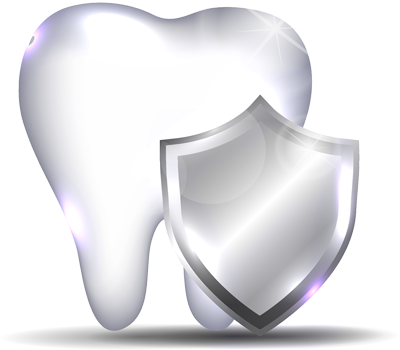Post-Operative Instructions Following Root Canal Therapy
Root canal treatment is done in order to retain a tooth which otherwise might need to be extracted. It is exacting, time consuming and costly (however it is less expensive than extraction and the placement of a bridge or implant). Although this treatment has a high degree of success, it cannot be guaranteed. Occasionally a tooth which has root canal therapy may require surgery or extraction.
The inside of the tooth and roots are thoroughly cleaned. After cleaning and controlling any infection, the roots are filled with a rubbery material to seal the canals. The root canal procedure usually takes one appointment, but occasionally may require 2-3 appointments depending on complexity of the roots (example; calcified and curved canals) which makes treatment difficult.
Treatment is performed using local anesthetic and is usually painless. The tooth will probably be sore for a few hours to days following treatment. This can usually be controlled with over the counter headache pain medication. Rarely, a ‘flare up” may occur after treatment and require a prescription (painkiller and/or antibiotic).
A temporary filling is placed in the tooth surface after the roots have been filled. Do not bite on tooth for the rest of the day. The surface of the temporary filling wears with time and may have a “dished out” feeling. This is normal. YOU SHOULD HAVE A PERMANENT FILLING PLACED BY YOUR FAMILY DENTIST WITHIN 3 WEEKS OF COMPLETION OF THE ROOT CANAL TREATMENT. Please schedule an appointment with your dentist ASAP. A written report and a copy of the final radiograph will be forwarded to your dentist.
Failure to have your tooth restored in a timely manner can result in loss of the tooth or the necessity to redo the endodontics at an additional fee.
You may be contacted in the next 6-12 months for re-examination of the tooth. Films taken then will permit us to review the healing process. It is important that some endodontically treated teeth be re-examined, since a small percentage of do not heal completely.
Your tooth may be sore for a few days after treatment. Usually Aspirin, Tylenol, or Advil will reduce your symptoms. Try not to exert chewing pressure on the tooth until you have a permanent filling placed. If the pain is more than aspirin or its equivalent will handle, please call our office for an evaluation. An additional prescription may be necessary. The pain should diminish daily and feel normal in 2-3 weeks.
Sometimes the gums and cheek adjacent to your tooth will swell and be quite painful. This is a “flare up”, if you have these symptoms please call. It may be necessary to prescribe medications or drain the infection.
Endodontic Surgery (apicoectomy)
The procedure involves cleaning at the ends of the root and sealing them in order to help adjacent tissues heal. An incision is made along the gum line to gain access to the root tips. If a cyst, abscess or other diseased tissue is present, it is removed and biopsied. A few sutures are placed after the procedure, which will be removed a few days later. The procedure is done using local anesthetic. Some people may prefer to have someone give them a ride home after surgery.
Post-Operative Instructions Following Apicoectomy
Please return directly home and rest quietly for the balance of the day.
DO NOT lift or unnecessarily move your lip. Minimize chewing on the treated side. If you accidently tear the sutures the incision may open and this will delay healing.
For your comfort, Ibuprofen (Advil, Motrin), Aspirin, or Tylenol may be taken every 4 hours. You may be given an prescription for an antibiotic. If so, take medication as indicated on the bottle. Please report immediately any adverse reactions that you have to the medications.
An ice bag or cold compress applied to the outside of your face, over the operated area, for the first 4 hours will keep swelling to a minimum.
A proper diet is vital to healing, but avoid chewing in the operated area until after your suture removal appointment. A soft diet is recommended for the first 2 days after surgery. After that, you may eat a normal diet.
Continue toothbrushing and flossing with the following exceptions:
- Don’t brush the surgical area the first day
- Brush gently in the surgical area after the first day with a very soft toothbrush.
- DO NOT rinse your mouth vigorously for the first 24 hours.
Alcohol in any form, including commercial mouth washes, is not to be used for at least 2 days after surgery.
DO NOT SMOKE. Smoking will increase bleeding and pain, and will delay or prevent healing.
Avoid fatigue. Go to bed early and get adequate rest.
Often the sutures will begin to unravel before your post-op appointment. If they unravel and are bothersome, you may trim the dangling ends. Please don’t tug on the sutures.
A written report and a copy of the final radiograph will be forwarded to your dentist.
You may be contacted in the next 6-12 months for a re-examination appointment. Films taken then will permit us to review the healing process following your treatment. It is important that some of these endodontically treated teeth be re-examined, since a small percentage of these do not heal completely.
WHAT TO EXPECT FOLLOWING SURGERY
Discomfort: You may have some discomfort but severe pain seldom occurs.
Swelling: You may notice slight facial swelling for 3-5 days.
Bruising: You may have some bruising around the mouth and jaw.
Numbness: You may experience numbness in the operated area for a few days. The gums in the surgical area may feel slightly different for a few months to finger pressure.
Other: The operated teeth may feel loose or sensitive to pressure.
